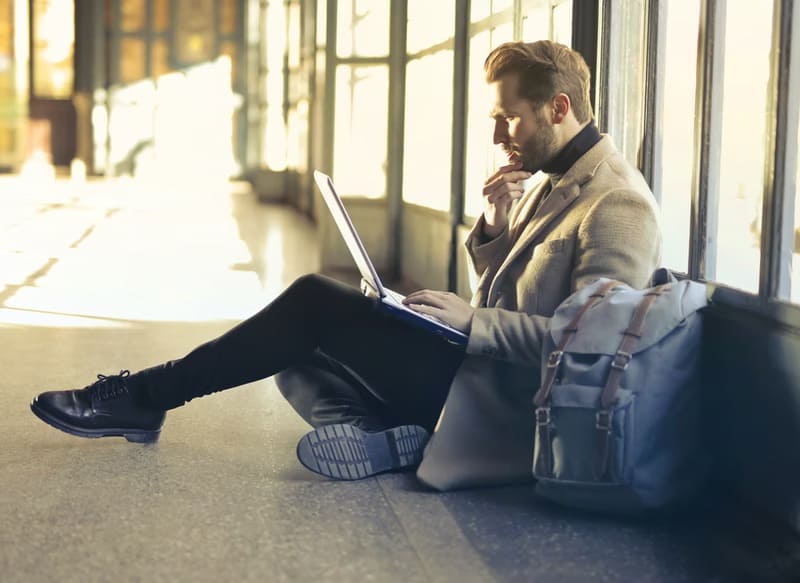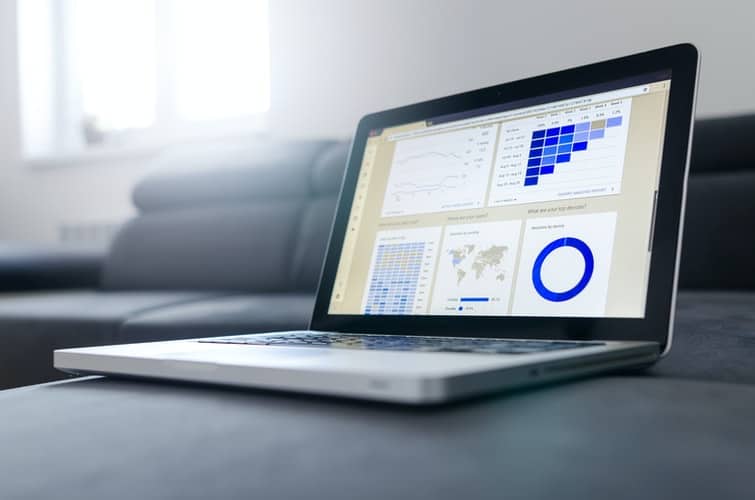Whether your small business has employees on a trip for business or for pleasure, unfortunately traveling is going to make them (and by association, your business) more vulnerable to cyber-attacks. Anyone carrying sensitive information with them on their devices, including smartphones and laptops, could be a target.
Make sure you and your company are putting in the greatest effort to increase your protection and ensure your business’ security with these cybersecurity tips for traveling.
Be Cautious About Public Wi-Fi
When traveling, be wary about using public Wi-Fi networks in places like hotels, coffee shops, or other places where multiple people work on their laptops. If possible, encourage your team to avoid it altogether, especially if traveling in a foreign country, since cybersecurity laws and regulations may not be the same.
Free Wi-Fi can be vulnerable to cyber threats, so avoid unencrypted networks that might compromise your data. If you or your team have to use public Wi-Fi, avoid accessing sensitive company information or logging into tools that allow access to your company’s data, and be sure to ask your hotel about its security protocol.
Install and Update Anti-Virus Software
This is something you should be doing anyway, but if you’re traveling with devices that connect you with sensitive information or PII, ensure that you’re also running anti-virus software and that it’s regularly updated and from a company you trust.
With employees working remotely, at a different office, or during vacation, making sure that your company is doing all it can to protect PII is crucial, including cloud backups, requiring multi-layer security, and regular software updates.
Update Your Passwords
If you’re going to be accessing personal or company information from your phone or computer while traveling, change the passwords that you regularly use, and make sure your computer and phone can’t be accessed without your unique pin, password, or fingerprint.
Avoid weak or predictable passwords by creating a password of 12 characters or longer that includes a mix of numbers, letters, and special characters. The 2020 Verizon Data Breach Investigation Report revealed that 81% of security breaches are because of weak passwords.
Disconnect Automatic WiFi and Bluetooth Connection
Many electronic devices such as phones and laptops have auto-connect settings enabled, which searches for nearby free Wi-Fi networks or Bluetooth networks and connects them with your device instantly. When traveling to ensure the highest defense against cyberthreats, disable these settings so nearby assailants can’t easily hack your device. Make sure you have to manually approve and connect to each Wi-Fi network or Bluetooth network in order to keep your information secure.
Install a Privacy Screen
Consider requiring your employees to install a privacy screen to their laptop or phone in order to place another obstacle between them and individuals who could be “spying.”
Device privacy screens, sometimes referred to as privacy filters, are thin pieces of material that adhere to your screen to restrict its viewing angle. These tiny polarized “blinds” will make it so that only the person directly in front of the device can view what’s on the screen, and protect your information from visual hacking.
Backup Your Information
As always, prioritize backing up your important information so that in case anything happens, you won’t lose it all. Using a cloud service is a great way to safely and securely back up information without the risk of losing or compromising a physical device.
Prevent Physical Theft
In addition to virtually protecting your information, you should also make sure that your devices are protected from physical theft and compromise as well. Travelers are often looked at as prime targets when it comes to theft. Never leave your devices unattended. When you don’t have your laptop on you, make sure it’s secured in your hotel safe.
Connect with CMIT Solutions
If you need assistance with boosting your cybersecurity, CMIT Solutions of Richardson has your back. We provide 24/7 security monitoring of your systems, including anti-malware and anti-virus protection, and can also assist you in backing up your sensitive data via backup services like cloud hosting. Contact us today and let’s get started.




